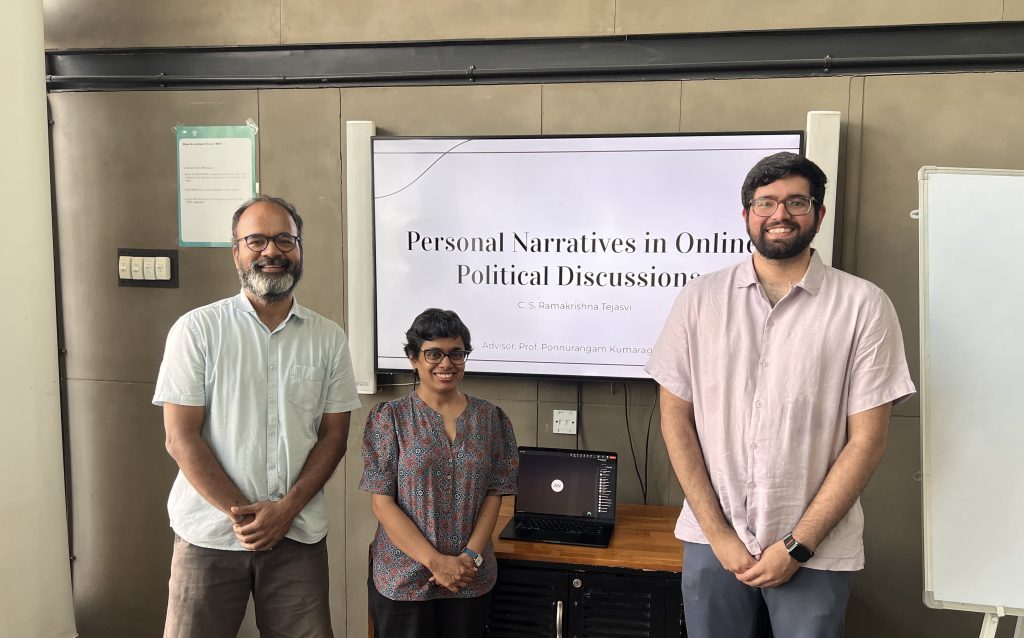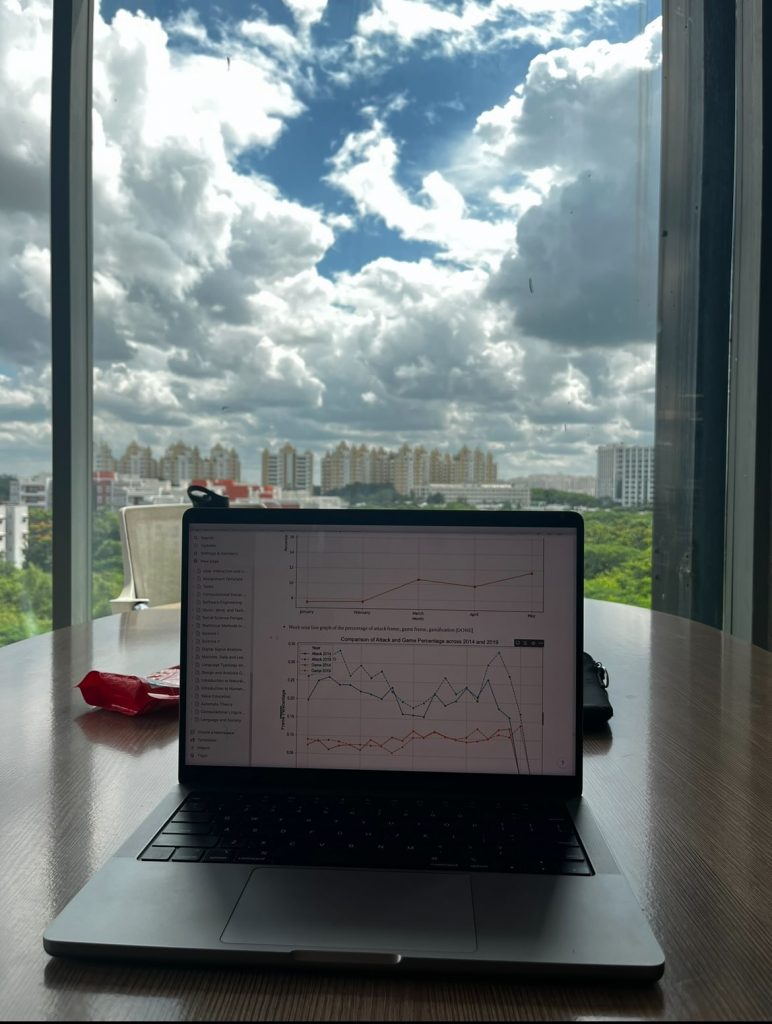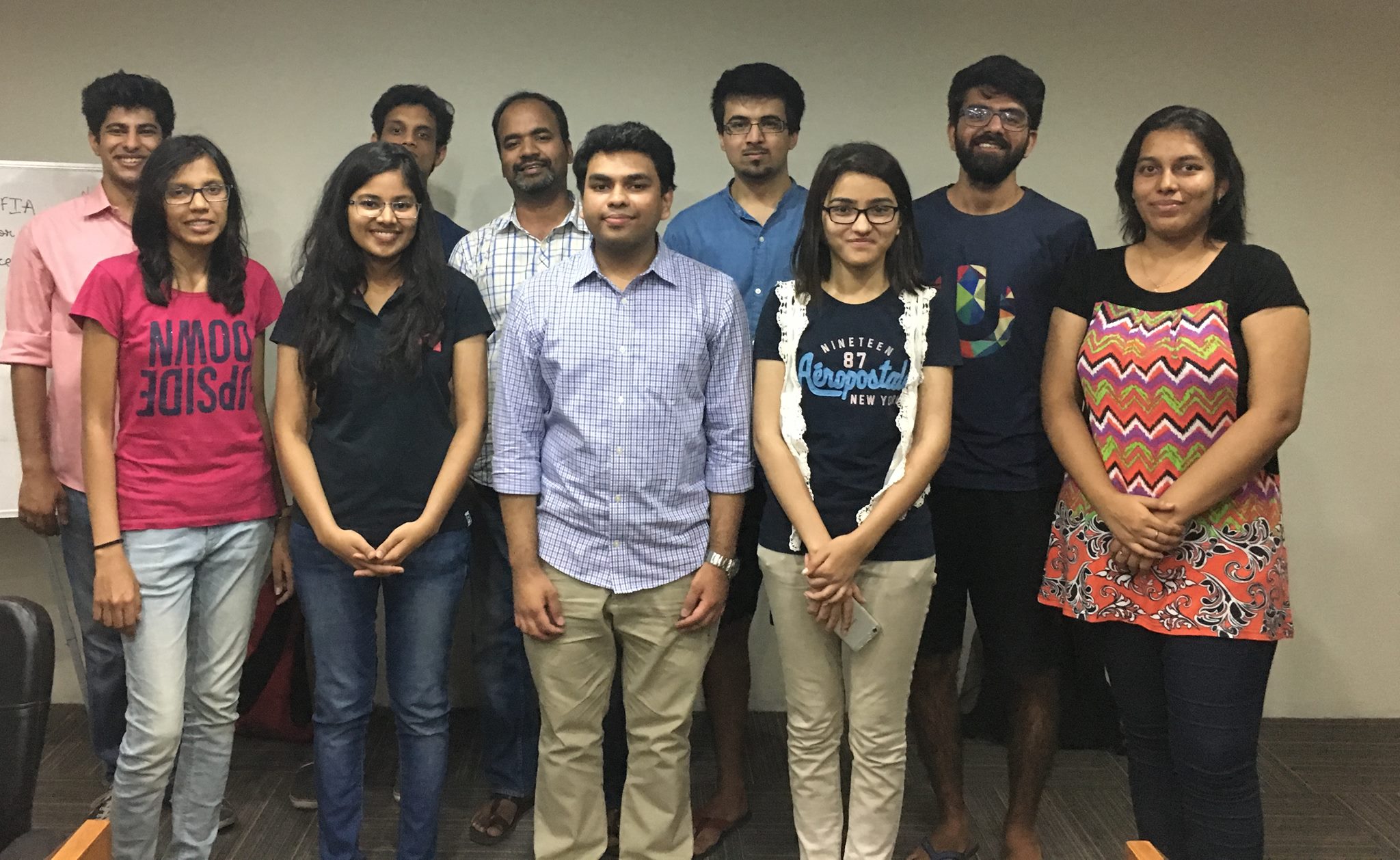Finding My Way: My Journey Through Precog with PK
Summary
My journey with Precog wasn’t a straight line. It involved hesitant applications, skipped interviews, and a long period of searching for my footing in research. I initially joined not for a specific project, but for the environment, the minds of my peers and the ability to work with PK. What followed was a period of struggle, project pivots, paper rejections, and significant self-doubt, stretching over years. Yet, through it all, PK’s unwavering belief, his unique mentorship style emphasising systems and student autonomy, and the collaborative spirit of Precog kept me going. An opportunity abroad led to more growth, but still no publications. Just as I was nearing graduation (finally!), with a flurry of paper acceptances, I made another sharp turn towards entrepreneurship, away from the research path I’d fought so hard for. And PK? He supported that too. This is the story of how Precog, and PK specifically, were instrumental in shaping me, not just as a researcher, but as a person ready to tackle ambiguity and forge my own path.

The Road to Precog: False Starts and Finding Motivation
Like many journeys, mine into the world of research, specifically within the Precog, wasn’t exactly direct. I actually circled the idea multiple times. I applied late in my 3rd year, where I considered an independent study, went through the initial application stages, submitted assignments… and then bailed before the interview. Why? A mix of laziness and a genuine question: “What value will Precog add to my life?”
Fast forward to my 4th year. I was hitting a wall with my existing research on ethical AI. My attempts felt directionless, and I realised I needed guidance from someone deeply immersed in the field. That someone was PK. I saw my friends in Precog thriving, engaged in exciting research, excelling academically, and being part of a vibrant, stimulating environment.
My motivation for finally committing to joining Precog was less about a specific research question and more about the ecosystem. Almost all the sharpest students in my batch were involved with Precog. I felt an intense need to surround myself in that environment of high agency, interest, and intellect. I knew PK was considered a tough taskmaster with his own idiosyncrasies, but I sensed he was the advisor I needed. Chasing him down wasn’t easy – he’s a busy man! I literally waited outside his lab multiple times. But true to what I’d later learn is his core nature, he gave me his time.
The Precog Experience: Overwhelming and Collaborative
Joining Precog felt like stepping into a high-intensity intellectual arena. It was daunting. Meetings were filled with smart people sharing complex ideas, debating vigorously. This was a world away from my previous lab experience. Precog was intensely collaborative. Input came from everywhere – peers working on different domains, bringing fresh perspectives to my problems. You were constantly exposed to state-of-the-art models, algorithms, and paradigms.
As others like Shashwat Goel have noted, one of Precog’s defining features is PK’s willingness to let students explore their interests. The group’s research portfolio has evolved significantly over time, reflecting this flexibility. When I joined, computational social science (CSS) was dominant, and I turned out to be one of the last few focusing heavily on it.
Hitting Walls, Learning Systems, and Pivoting
My initial months were rough. I felt overwhelmed and wasn’t making much progress. This was around the beginning of my 4th year/end of 3rd-year summer. I had to step up. PK suggested a collaborative project with IIT Madras at the intersection of biology, social science, and computer science, all areas that fascinated my “breadth-first” approach to learning.
Despite my interest, I struggled. Things weren’t working. I confessed to PK that juggling this and my project with my co-advisor felt unproductive. His response wasn’t just “try harder.” He gave me structure: “You need systems. Technical documentation, meeting notes – updated systematically.” I initially bristled at this bureaucracy, hating things which felt like writing lab journals. But I complied. And slowly, I realised the value. It wasn’t about the documents themselves; it was about building repeatable, organised processes for thinking and working, which are systems I still use today in every professional interaction.
Even with systems, progress remained elusive on both fronts. I told PK I didn’t think this was working. His response was crucial: “Okay, we can stop both. Why don’t you start something new?” He connected me with one of his former students, Professor Ashwin Rajadesingan at UT Austin, who was doing compelling work on elections and CSS. This freedom to pivot, to leverage PK’s network, is a hallmark of the Precog experience. If you have an idea or see an opportunity, PK throws his energy into making it possible.

Navigating the Storm: Rejections, Self-Doubt, and Unwavering Support
Working with Ashwin was invigorating. We, along with my co-authors Rohan and Harsha, wrote our first paper. We submitted it. And it got horrible reviews. This was around the end of my 4th year (4.2). Many of my dual-degree batchmates already had publications. The self-doubt hit hard: “You suck. Everyone’s better. You picked a niche field. This isn’t even real CS.”
During this time, most peers were looking at industry internships. PK’s advice was frank: “Focus on your research.” It was the nudge I needed. My collaboration with Ashwin deepened – he was fantastic to work with. PK remained in the loop, offering guidance, but mostly trusting Ashwin and me to drive the project.
Despite the lack of publications after nearly 1.5 years in Precog, the possibility of a research internship abroad – a common experience for Precog students – came up. Ashwin was supportive, and PK readily agreed. The plan was for me to spend time at UT Austin starting in my 5th year (5.2). Around this time, my sister fell seriously ill, requiring me to step back. PK was completely understanding. He supported my need to secure a job placement first. His focus was always holistic.
I went to UT Austin with a clear goal: figure out if research was truly my path. I’d dabbled in open source, ethical hacking, and even sports analytics. Now, I wanted to commit. My time in Austin was transformative, exposing me to new researchers and ways of thinking. But the publications still weren’t coming. We submitted the paper again. Rejected again.
As my initial stint ended, I wanted to stay longer. I felt I was finally embracing the research process, even without accepted papers. Telling PK felt risky – I hadn’t graduated, had no tangible results, and was asking to stay far away, limiting our direct interaction. Yet, his response was pure PK: unwavering faith. He was okay with it, emphasising the importance of eventual graduation. He knew my tendency to juggle multiple things, perhaps not always finishing tasks perfectly, yet he still believed in me.
The Breakthrough… And Another Unexpected Turn
I started my 6th year of college in the US, determined to get a paper accepted. We submitted our main paper again. Another rejection. Ouch. By now, I was pinning my hopes on a different paper idea. We kept refining the original one, but I also started exploring a new, communication-heavy topic. I pitched it to PK, slightly worried it was outside his usual scope. He jumped right in, offering insights, reviewing drafts, fully engaged.
Simultaneously, exciting things were happening. I received an opportunity to stay in the US post-graduation as a researcher. I was ecstatic! But again, the fear – telling PK I wanted to extend my stay and needed him as a reference, despite my two-and-a-half-year publication drought. His response, as always, was supportive.
Then, the dam broke. Visa issues forced me back to India. And within a month of returning, I received three paper acceptances. Suddenly, after years of drought, I was on the verge of submitting my thesis.
But the story takes one final twist. After coming back to India, I had a realisation. My drive wasn’t just about solving hard problems through research; it was about building solutions and creating value for everyone. Entrepreneurship called. This felt like a massive betrayal. I’d just spent years, supported by PK’s time, resources, and faith, building towards a research career (even fielding an ML Engineer job offer in the US just weeks before, which I’d declined for research!), only to throw it away seemingly. I braced for disappointment.
Instead, PK was incredibly graceful. “This is the best time for you to do it,” he said. “I know you’ll figure things out.” No guilt trips, just support for my newfound direction. Today, I’m building a company, aiming to democratise buyer-seller interactions and reduce the dependency on aggregators.
Why Precog? Why PK? The Enduring Value
So, for students wondering if Precog is worth it? My answer is an unequivocal yes.
Yes, because of PK. You get a mentor who genuinely puts your interests ahead of his own, who trusts you even when you doubt yourself, who provides opportunities, demands rigour (those systems!), and ultimately supports your definition of success. He doesn’t discriminate based on who seems like the “star student”; he wants the best for all his students, recognising each needs different things.
Yes, because of the people. You are immersed in a peer group that challenges you, collaborates with you, and exposes you to ways of thinking you wouldn’t encounter otherwise.
Research is tough. The peer-review process can be frustrating. I didn’t end up becoming a full-time academic researcher. But the process – the deep dives, the critical thinking, the structured approach, the perseverance required to get work validated by peers – was invaluable. PK’s foresight and patience in letting me navigate this messy, non-linear path were critical.
Even now, as I build my company, the lessons learned and the confidence gained during my time at Precog, under PK’s unique mentorship, resonate deeply. Knowing there’s someone like PK out there, looking out for your growth long after you’ve left the lab, is one of the most valuable things you can ask for in an advisor. It wasn’t the journey I expected, but thanks to Precog and PK, it was exactly the journey I needed.
